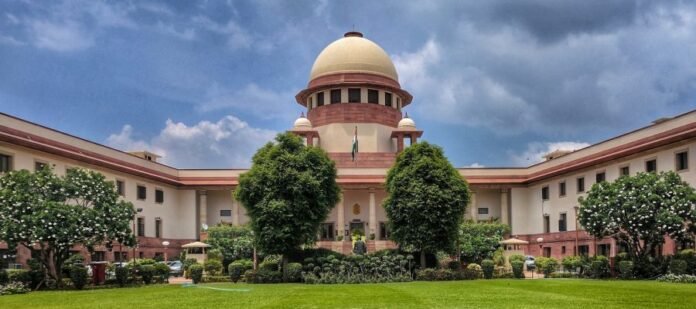Supreme Court urges GST Council to handle tracking of GST on foreign OIDAR services, disposing PIL seeking regulatory mechanism.
The Supreme Court has recommended that the GST Council examine the matter of regulating and tracking tax compliance on foreign digital services provided in India.
Supreme Court Disposes PIL on Foreign OIDAR Service Tracking
In a recent development highlighting concerns over digital taxation, the Supreme Court has disposed of a Public Interest Litigation (PIL) that sought the establishment of a mechanism to track the Goods and Services Tax (GST) paid by foreign Over-the-Top Information and Database Access or Retrieval (OIDAR) service providers operating in India.
The bench, comprising Justice BV Nagarathna and Justice KV Viswanathan, passed the order after a brief hearing in which Advocate Charu Mathur appeared on behalf of the petitioner. The court emphasized that the appropriate authority to examine and decide on such matters is the GST Council, and refrained from issuing any directions on its own.
What Are OIDAR Services and Why the Concern?
OIDAR services refer to digital services such as streaming platforms, e-books, cloud software, online gaming, and other internet-based offerings provided by foreign entities to Indian consumers. Under the GST framework, such services are taxed at 18%, and the responsibility of compliance lies with the overseas supplier.
However, the petitioner had raised concerns that many foreign entities may not be properly accounting for GST liabilities, potentially leading to significant revenue leakage. The PIL urged the Court to direct the government to implement a tracking and reporting mechanism for these transactions.
The Court’s Observations
In its short but significant order, the apex court stated:
“The issues raised in the petition are within the policy domain. The GST Council is the appropriate authority to examine such matters in coordination with the relevant authorities. Accordingly, we dispose of the petition leaving it open to the petitioner to make a representation before the Council.”
This indicates the Court’s deference to the constitutional role of the GST Council, which is empowered to make recommendations on various aspects of GST, including compliance and enforcement.
Industry Implications
The disposal of the PIL has brought renewed attention to the challenges of taxing the digital economy, especially in a jurisdictional context where service providers are based outside India. Industry experts believe that compliance among large foreign players like Netflix, Spotify, and Adobe may already exist, but monitoring smaller and less-known entities remains a grey area.
Tax analysts also point to the complexity of enforcement when the service provider has no physical presence in India, and the consumer base is scattered across the country. In the absence of a structured audit mechanism or cross-border data-sharing arrangement, the potential for tax evasion remains significant.
GST Council’s Track Record
The GST Council, a constitutional body headed by the Union Finance Minister and comprising representatives from all states and union territories, has previously dealt with issues concerning digital taxation. In 2017, the Council clarified that foreign digital service providers fall under the OIDAR category and must register under GST in India.
However, as pointed out in the PIL, there has been little visibility on actual compliance and revenue collected from such sources. The petitioner also highlighted that without effective oversight, Indian companies could be placed at a disadvantage, since they are subject to stricter compliance norms.
Next Steps: Policy or Judicial Oversight?
Now that the Supreme Court has left the matter in the hands of the GST Council, attention turns to whether the Council will take up the issue proactively. Experts suggest that the petitioner could file a detailed representation or follow up with the Finance Ministry to initiate formal discussions.
Meanwhile, public interest groups continue to demand greater transparency in GST collection from foreign entities. They argue that with India’s growing digital economy and increasing consumer base for foreign apps and platforms, ensuring fair taxation is not just about revenue but about market parity.
Legal Context and Way Forward
This judgment once again reinforces the Supreme Court’s position that matters involving policy formulation are best handled by competent authorities, unless there is clear evidence of constitutional violation or rights infringement.
It remains to be seen whether the GST Council will prioritize this concern in its upcoming meetings. Given the global push towards Digital Services Tax (DST) and OECD’s ongoing deliberations on cross-border taxation, India’s stand on the matter will likely evolve in the coming months.
For now, the focus shifts to policymakers, and the Court has signaled that its doors remain open — but only after institutional remedies are exhausted.
🧷 Read more legal updates and expert views on our News Section or explore Insights from India’s leading legal minds.
📺 For explainer videos and expert interviews, visit our YouTube Channel.




